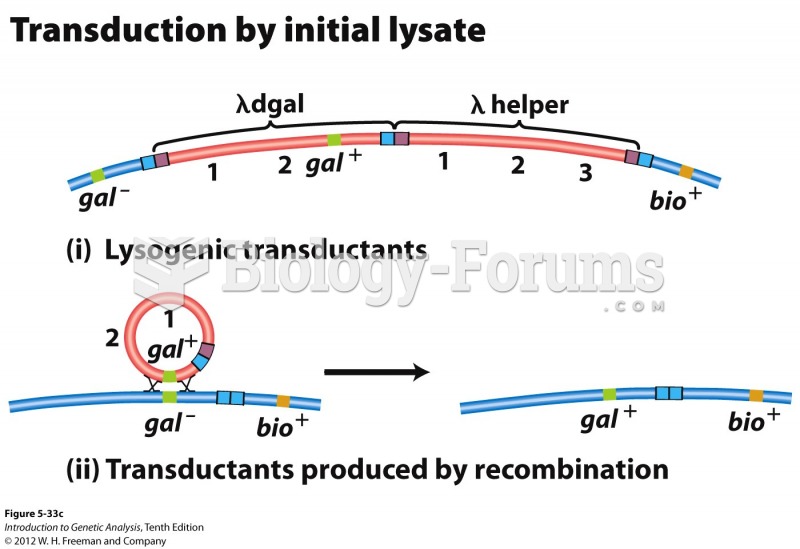|
|
|
Drying your hands with a paper towel will reduce the bacterial count on your hands by 45–60%.
Drug abusers experience the following scenario: The pleasure given by their drug (or drugs) of choice is so strong that it is difficult to eradicate even after years of staying away from the substances involved. Certain triggers may cause a drug abuser to relapse. Research shows that long-term drug abuse results in significant changes in brain function that persist long after an individual stops using drugs. It is most important to realize that the same is true of not just illegal substances but alcohol and tobacco as well.
Bacteria have flourished on the earth for over three billion years. They were the first life forms on the planet.
The horizontal fraction bar was introduced by the Arabs.
More than nineteen million Americans carry the factor V gene that causes blood clots, pulmonary embolism, and heart disease.







